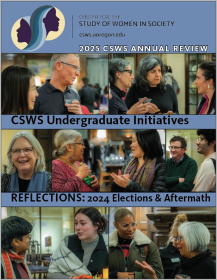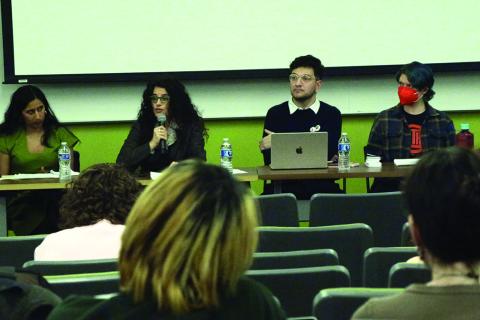
CSWS Annual Review


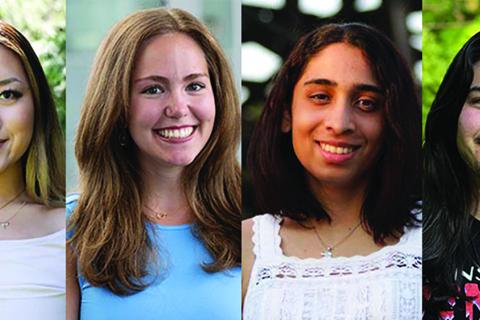
Personal Stories Inspire Summer Undergraduate Research Projects
The Center for the Study of Women in Society has launched a new student-centered research initiative—the CSWS Undergraduate STEAM Summer Fellowship. Over the summer, undergraduate fellows collaborated with University of Oregon faculty mentors to develop interdisciplinary research and creative projects that engage with STEAM fields—science, technology, engineering, arts, and mathematics. Our STEAM fellows approach their inquiry with gender and intersectionality as an analytical framework.
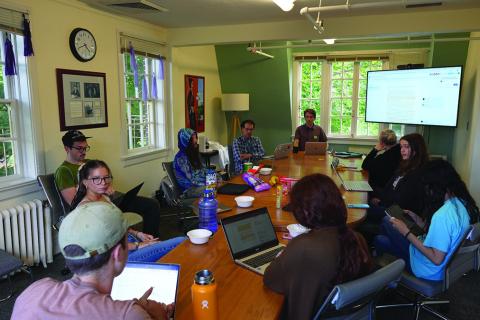
Encountering Women’s History in a CSWS Calderwood Seminar
In the Jane Grant Room at CSWS, a dozen students gather around the conference table as their instructor gets the workshop started. This week, classmates in group A are the editors, providing detailed critical and generative feedback to the op-ed writers in group B. Next week, their roles will be reversed.
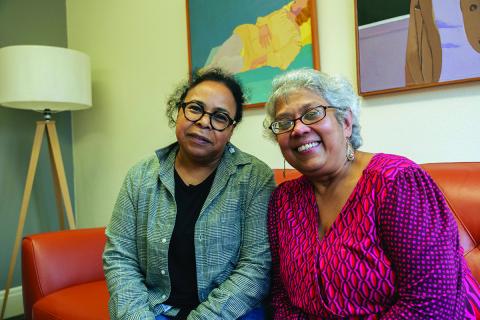
A Year in Review: 2024-2025
2025 Annual Review
- A Year in Review by Sangita Gopal, Associate Professor, Department of Cinema Studies
- Encountering Women's History in a CSWS Calderwood Seminar by Jenée Wilde, Associate Teaching Professor, Department of English
- Personal Stories Inspire Summer Undergraduate Research Projects by Jenée Wilde, Associate Teaching Professor, Department of English
- Multimedia Spotlight
- Gender as Target: US 2024 Elections and Aftermath reflections by Sofia Vicente–Vidal, Liesl Cohn De León, and Vasil A. Arangelov
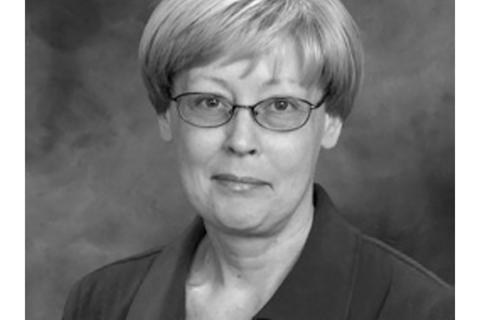
In Memoriam: Peggy Pascoe
Peggy Pascoe, whose research and teaching focused on the history of race, gender and sexuality, was the Beekman Professor of Northwest and Pacific History and professor of Ethnic Studies at the University of Oregon. With family and friends at her side, she died from ovarian cancer on July 23, 2010, at home in Eugene, Oregon.
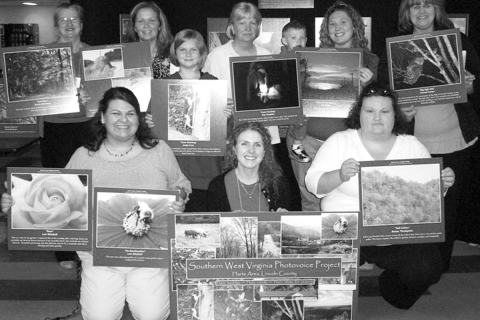
Photovoice in the Appalachian Coalfields
As a sociology graduate student, Shannon Elizabeth Bell displayed an activist’s heart. In her first grant application to CSWS, Bell noted that women are at the fore of the anti-coal movement in central Appalachia, stepping out of their traditional gender roles to take an active leadership position in fighting the coal industry. Her scholarship had a mission—to help these women in low income coal-mining areas of West Virginia find more effective ways to use their voices through grassroots action.
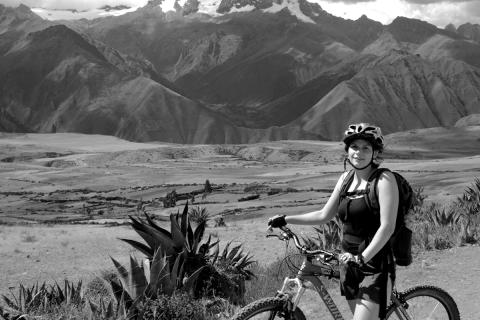
A New Scholarship for Undergraduates
As the first recipient of the $1,000 Jane Higdon Scholarship, senior AlexAnn Westlake earned support for her research on birthing choices in Chile.
It’s hard to imagine that the UO Center for the Study of Women in Society could have found a more appropriate recipient of the first Jane Higdon Senior Thesis Scholarship than Alex Ann Westlake.
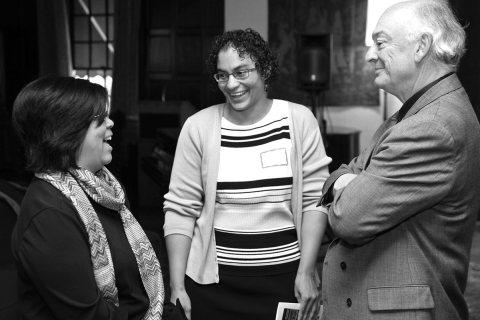
The Women of Color Project
In 2008, CSWS was awarded a Ford Foundation grant from the National Council for Research on Women for “Diversifying the Leadership” of CSWS by promoting the leadership of women of color from historically underrepresented groups in the United States. Coordinated by then newly-tenured associate professor Lynn Fujiwara, “Women of Color, Borders, and Power: Mentoring and Leadership Development” involved ten women of color junior faculty from a broad range of disciplines in a yearlong project designed around mentorship, leadership development, and academic success.

Modern Girls on the Go
by Alisa Freedman, Assistant Professor of Japanese Literature and Film

